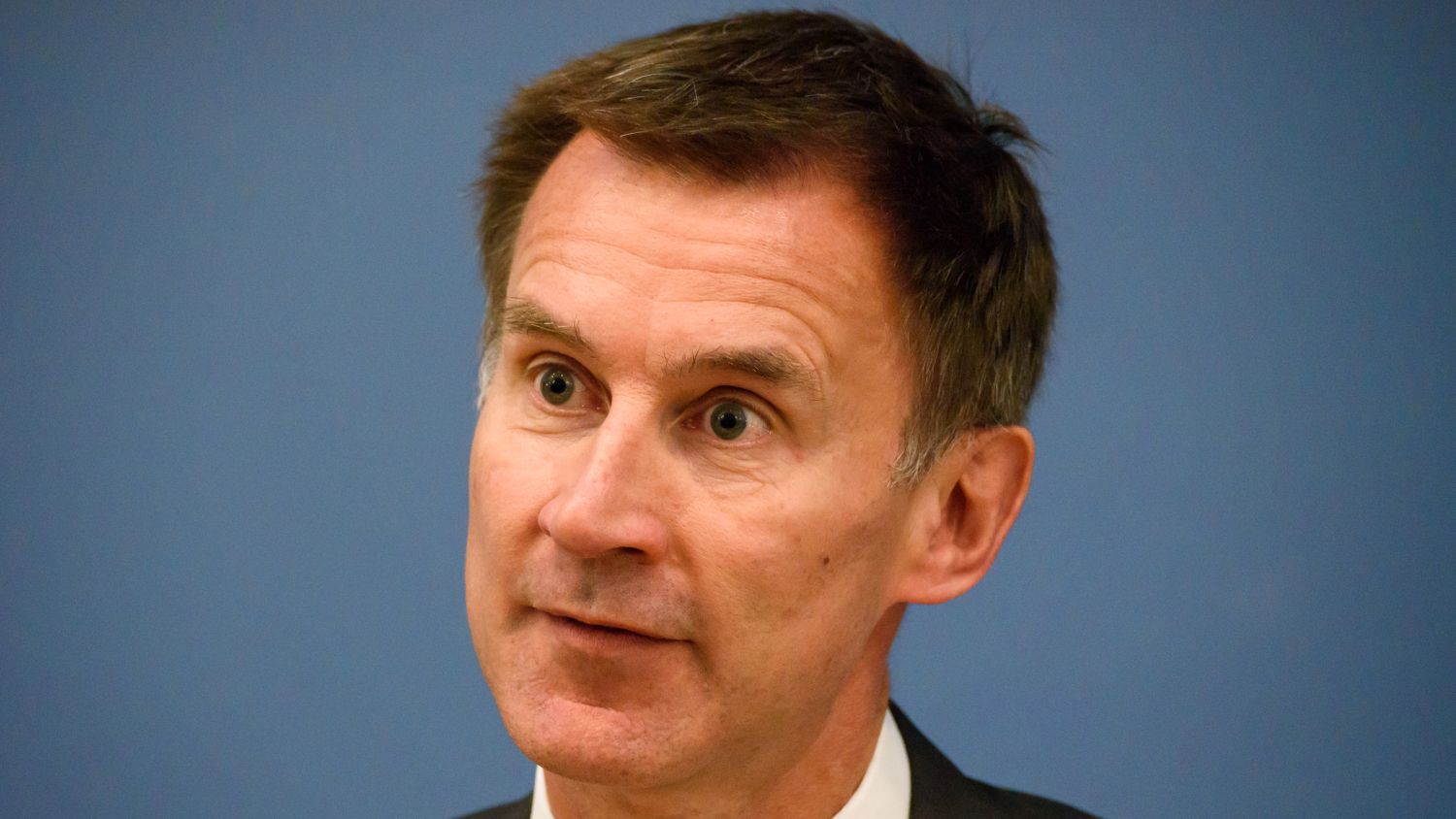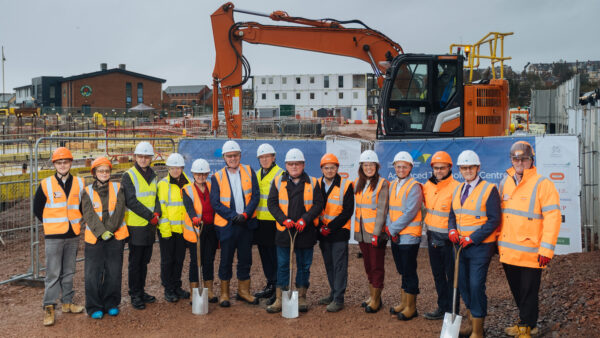
The government is still ‘underestimating’ the role construction can play in addressing the cost of living and energy crises.
That’s the view from the Chartered Institute of Building’s (CIOB) director of policy, external affairs and research, Eddie Tuttle.
Tuttle was commenting following the Autumn Statement delivered today (17 November) by Chancellor Jeremy Hunt.
The Autumn Statement came as the UK enters a recession, with the Office for Budget Responsibility forecasting a 1.3% drop in gross domestic product (GDP) next year.
Among key measures announced by the chancellor were:
- A further £6bn in energy efficiency investment – including insulation and cleaner forms of heating – from 2025, in addition to the £6.6bn already planned, as the government aims to reduce energy consumption from buildings and industry by 15% by 2030.
- Sizewell C nuclear plant will move forward, with contracts due to be signed in the coming weeks, after the project was placed under review.
- The safeguarding of capital investment over the next five years, including in HS2, the “core” Northern Powerhouse Rail and the hospital building programme.
- The government will freeze tax thresholds, including employers’ national insurance contributions until 2028.
- The UK national living wage for people over 23 will increase from £9.50 to £10.42 an hour from next April.
Tuttle said: “While the cost of living and energy crises are rightly priorities for government, the role of the construction industry in addressing both of them is, in our view, being underestimated and this has been evident in today’s Autumn Statement.
“We look forward to seeing the government’s plans for the funding it has today allocated to improving energy efficiency and hearing more of the detail, which is currently lacking. Representatives from the built environment must be included in the Taskforce the chancellor has announced if any plans to meet energy efficiency targets are to be successful, and we would welcome the opportunity to share our expertise.
“While the cost of living and energy crises are rightly priorities for government, the role of the construction industry in addressing both of them is, in our view, being underestimated and this has been evident in today’s Autumn Statement.”
“The built environment sector is without doubt, pivotal in reducing carbon emissions, not only during the construction of new buildings and critical infrastructure, but also in the retrofitting of existing homes to make them more energy efficient. Without this, government will not meet its target of reducing the carbon emissions from buildings by 15% by 2030 and reduce household energy bills, which continue to be one of the biggest concerns for the UK population.
“Continuing investment and forward planning from a stable government is critical to enable the construction sector to properly plan ahead with confidence and play its part in addressing net zero, levelling up and ultimately the cost of living and energy issues faced by millions.”
Association for Project Management (APM)
APM’s chief executive, Professor Adam Boddison, said: “The key words the chancellor used when presenting this budget were ‘balance’, ‘stability’ and ‘growth’ and it is clear to see that the power of projects to deliver economic and social benefit has been recognised. The emphasis of the Budget is very much on achieving growth through projects in energy, infrastructure and innovation.
“We welcome this recognition and the investment that accompanies it. However, it must be remembered that policy announcements don’t deliver projects: people do. Investing in people, as well as material resources, will create the skills necessary to deliver projects now and in the future.
“We acknowledge that the UK remains in the midst of challenging economic times and that people across the country are facing hardship and difficulties. We believe that projects will be the key to unlocking economic growth and delivering benefits for society. The success of this Budget must therefore be judged not against tomorrow’s headlines, but on its impacts on projects and programmes delivering real benefits to people, at both local and national level.”
Institution of Civil Engineers
Chris Richards, director of policy, said: “In today’s Autumn Statement the chancellor needed to uphold confidence in long-term infrastructure projects. His commitment to maintaining investment in line with the National Infrastructure Strategy, the much-needed plan to increase energy efficiency, and the continued commitment to levelling up underperforming economic regions are all common-sense measures that acknowledge the critical role infrastructure development plays in building a more sustainable nation.
“If the government wants to avoid delivering bad news on infrastructure investment further down the line, then it should become an ardent champion of everything the industry is doing to deliver infrastructure better.”
“However, there were a few cans kicked down the road. The choice to maintain capital budgets in cash terms from 2025/6, rather than increase them in line with inflation, effectively means a cut.
“With inflation at over 11%, we will have to do more with less, and the spectre of project reprioritisation still looms large. If the government wants to avoid delivering bad news on infrastructure investment further down the line, then it should become an ardent champion of everything the industry is doing to deliver infrastructure better, like the initiatives outlined in the Construction Playbook and in Transforming Infrastructure Performance.
“These best-practice approaches will help the industry, and the country, get more from every pound of investment.”
Association for Consultancy and Engineering (ACE)
Stephen Marcos Jones, chief executive, said: “It will come as no surprise that the chancellor presented a challenging macro-economic picture, and with tax increases previewed in the media over the last few weeks, today’s tax announcements have already had time to be digested by the business community.
“I wrote to the chancellor this week outlining the importance of investment in infrastructure to deliver the jobs and growth that will help drive the economy through the challenging times ahead. With this in mind I was pleased to see the government maintain the capital programme, which means the Northern Powerhouse Rail core, HS2, and the new hospitals programme can all progress. ACE also welcomes the commitment to new energy infrastructure in Sizewell C.
“As important was the news that devolution deals have been struck for Suffolk, Norfolk and Cornwall, as well as increased powers for the Combined Authorities in West Midlands and Greater Manchester. Increasing local decision-making is crucial if we are to make real progress on levelling up across the UK, but we would have liked to have seen the government use this opportunity to consolidate and ringfence spending, rather than introduce another round of competitive funding.
“We were also pleased to see a new focus on innovation for investment zones. While it may impact councils that initially expressed an interest, we look forward to seeing what can be made of these initiatives.”
“We were, however, surprised to see road duty on EV vehicles raised and it does raise broader questions around the long-term viability of the current system which relies on fuel duties to fund road investment. ACE has long argued for reform in this space, and we look forward to engaging with government departments on the issue.”










